Related Research Articles
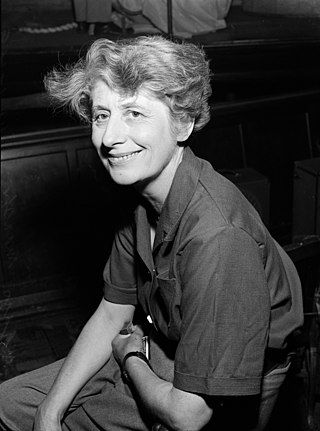
Dame Edith Ngaio Marsh was a New Zealand mystery writer and theatre director. She was appointed a Dame Commander of the Order of the British Empire in 1966.
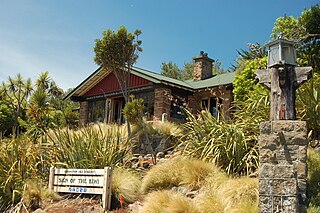
Cashmere is a suburb which rises above the southern end of the city of Christchurch in New Zealand's South Island.
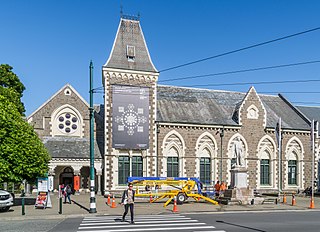
The Canterbury Museum is a museum located in the central city of Christchurch, New Zealand, in the city's Cultural Precinct. The museum was established in 1867 with Julius von Haast – whose collection formed its core – as its first director. The building is registered as a "Historic Place – Category I" by Heritage New Zealand.

Cashmere High School is a state coeducational secondary school, located in southern Christchurch, New Zealand. It was opened in 1956 in response to population growth in southern Christchurch during the 1950s.
Dame Reubina Ann Ballin was a New Zealand psychologist and victims' rights advocate. In 2002, she was accorded New Zealand's highest civilian honour, membership of the Order of New Zealand.

Sir Terence Henderson McCombs was a New Zealand politician of the Labour Party, a High Commissioner, and the first principal of Cashmere High School.

Megan Cherie Woods is a New Zealand Labour Party politician who serves as a Cabinet Minister in the Sixth Labour Government and has served as Member of Parliament for Wigram since 2011.

Cecil Walter Wood was a New Zealand architect. He was the dominant architect in Canterbury during the interwar period.

Doris More Lusk was a New Zealand painter, potter, art teacher, and university lecturer. In 1990 she was posthumously awarded the Governor General Art Award in recognition of her artistic career and contributions.
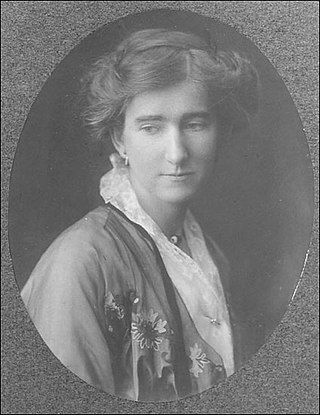
Mary Ursula Bethell, was a New Zealand social worker and poet. She settled at the age of 50 at Rise Cottage on the Cashmere Hills near Christchurch, with her companion Effie Pollen, where she created a sheltered garden with views over the city and towards the Southern Alps, and began writing poems about the landscape. Although she considered herself "by birth and choice English", and spent her life travelling between England and New Zealand, she was one of the first distinctively New Zealand poets, seen today as a pioneer of its modern poetry.

Charles Obins Torlesse was a prominent surveyor for the Canterbury Association in Canterbury, New Zealand.
Viola Helen Macmillan Brown was an artist from Christchurch, New Zealand.

Mary Townsend was an artist and an early English settler in Canterbury, New Zealand.

Margaret Belcher was a New Zealand literary scholar who was a specialist in the literary output of Augustus Pugin, whose letters she edited in five volumes.
Ria Bancroft was a British-New Zealand artist born in England. She created the Tabernacle Screen Doors for Cathedral of the Blessed Sacrament in Christchurch and her works are held in several New Zealand art galleries.
Gladys Mary Goodall was a New Zealand photographer whose work was used for scenic postcards of the country. Her photographs are held in the collection of Museum of New Zealand Te Papa Tongarewa and the National Library of New Zealand.

Tracey Lee McLellan is a New Zealand politician. In 2020 she was elected as a Member of Parliament in the House of Representatives for the Labour Party.
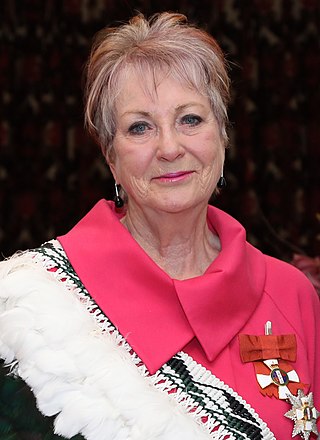
Dame Anna Louisa de Launey Crighton is a New Zealand heritage campaigner and historian, and former local-body politician in Christchurch.
Ravenscar House Museum is an art museum located in Christchurch, New Zealand, and operated by Canterbury Museum. It exhibits the collection of Christchurch philanthropists and art collectors Jim and Susan Wakefield, and opened to the public on 8 November 2021.
Sibella Mary Ross was a New Zealand schoolteacher and businesswoman. She established Ross House, a preparatory school for boys, in Christchurch in 1869.
References
- 1 2 "Susan Mary Lojkine in the New Zealand, naturalisations, 1843–1981" . Ancestry.com Operations. 2010. Retrieved 2 January 2023.
- 1 2 3 "Cashmere girl's success in School Certificate". The Press . Vol. 98, no. 28819. 13 February 1959. p. 7. Retrieved 2 January 2023.
- ↑ "Susan Turtle in the UK and Ireland, outward passenger lists, 1890–1960" . Ancestry.com Operations. 2012. Retrieved 2 January 2022.
- ↑ "Cashmere High School". The Press . Vol. 99, no. 29384. 10 December 1960. p. 15. Retrieved 2 January 2023.
- ↑ "Brief speeches this year at university's graduation ceremony". The Press . Vol. 103, no. 30435. 8 May 1964. p. 7. Retrieved 2 January 2023.
- ↑ Lojkine, Susan Mary (1964). Themes of Russian lyric poetry, 1800–1830 (MA thesis). University of Canterbury. Retrieved 2 January 2023.
- ↑ Lojkine, Susan Mary. The defective verb in modern Russian (PhD thesis). University of Canterbury. Retrieved 2 January 2023.
- ↑ "Engagements". The Press . Vol. 103, no. 30532. 29 August 1964. p. 2. Retrieved 2 January 2023.
- ↑ "Obituary: Alexander Kozma Lojkine (1920–1992)". New Zealand Slavonic Journal: 1–2. 1992. Retrieved 2 January 2023.
- ↑ "Lojkine, Alexander Kozma – Christchurch – retired university teacher". Archives New Zealand. Retrieved 2 January 2023.
- 1 2 "Jim and Susan Wakefield". Ravenscar House Museum and Gallery. Retrieved 31 December 2022.
- 1 2 3 "Susan Wakefield". University of Canterbury. Archived from the original on 21 April 2018. Retrieved 20 April 2018.
- ↑ "Consultative document on international tax reform: Chapter 1 – Introduction". Inland Revenue. Retrieved 20 April 2018.
- 1 2 "Ministerial inquiry into the electricity industry". New Zealand Government. 3 February 2000. Retrieved 20 April 2018.
- 1 2 Guildford, Jonathan (27 February 2021). "Life story: Jim Wakefield was a harness racing legend and philanthropist". The Press . Retrieved 2 January 2023.
- ↑ "The Ravenscar Story". Ravenscar House Museum and Gallery. Retrieved 31 December 2022.
- ↑ "No. 53154". The London Gazette (2nd supplement). 31 December 1992. p. 30.
- ↑ "The New Zealand Suffrage Centennial Medal 1993 – register of recipients". Department of the Prime Minister and Cabinet. 26 July 2018. Retrieved 18 September 2018.
- ↑ "Susan Wakefield obituary". The New Zealand Herald . 23 November 2022. Retrieved 30 December 2022.